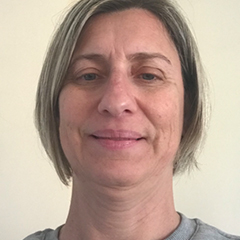

Maria Adelina Manuel
Maria Adelina Manuel holds a Master’s degree in the field of Management and Administration of Schools and is currently a PhD candidate in Education with the project: “Necessidades e tipos de formação contínua para a inclusão de professores do ensino básico”. She is a member of the ReLeCo Public Policies and Governance in Education.
Advisor: Luzia Lima-Rodrigues.
Áreas de interesse académico e científico Areas of academic and scientific interest
- Inclusion
- Equity
- Public Policies for Education
- School Management and Administration
- Autonomy and Curriculum Flexibility
Abstract
The research stems from a PhD in Education and a professional and personal interest in teacher training for inclusion, as well as the characterisation of teachers' training needs in terms of the training available, the training provided and the training they actually need. The Review of Inclusive Education in Portugal OECD-2022 highlights that career teachers participate in 50 hours of training per evaluation cycle and that there are opportunities to develop and improve teachers' work, but it is unclear whether this makes a difference to their thinking and practice in the areas of diversity, equity, and inclusion. According to the Activity Report/2019 of the Scientific and Pedagogical Council for Continuing Teacher Education, the publication of Decree Laws 54 and 55/2018 led to a significant increase in training activities to promote inclusive schools. Although there has been an increase in training for teachers in 2019 to respond to the new challenges of the legislation implemented in 2018, the OECD-2022 report states that Portugal needs to develop continuous professional development focused on diversity and cultural inclusion. This raises the question What are the needs and types of professional development for primary school teachers in the area of inclusion? In order to answer this question, we intend to establish a set of principles by characterising teachers' training needs and their professional and training experiences. The research has a qualitative methodology, the data collection techniques and instruments are questionnaire survey, focus groups and documentary analysis and the data analysis technique is content analysis. The subjects will be teachers from the three basic education cycles selected from School Clusters of the five Regional Services Directorates of the Ministry of Education.


